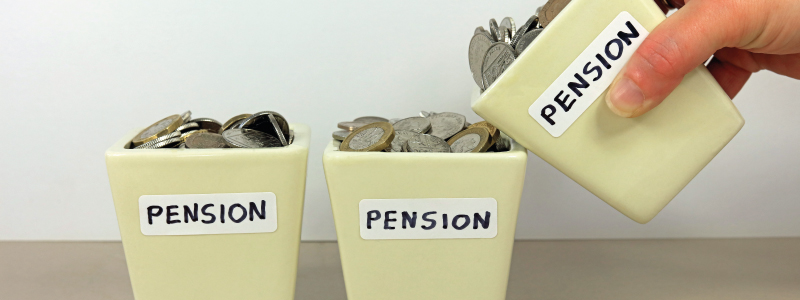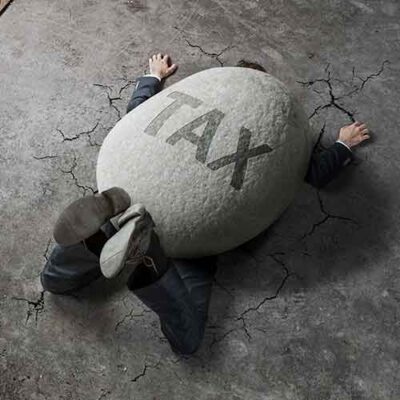Different types of pension
Understand the differences between DC and DB pensions, find out what type of pensions you have

What type of pension do I have?
If you’re a normal sort of person, you probably find pensions confusing. Don’t worry, almost everyone does. All the rules! All the acronyms!
To get the best out of your pensions, it’s important to understand what type they are, so you know what you can do with them.
There are two main types of pension: defined contribution (DC) and defined benefit (DB). We’ll explain the differences, how they work, and how to tell if you’ve got one.
What is a DC pension?
This is the most common type of pension. If you’re saving into a pension now, it’s almost certainly one of these. They’re sometimes called money purchase pensions.
How DC pensions work?
In a DC pension, you pay contributions into a pension pot and choose investments to help your pot grow. If it’s a workplace pension, your employer usually pays contributions too.
And you get tax relief on the contributions, which is effectively a government top up to your pension of basic rate tax you will most likely have already paid on income received..
Check out our Are pensions worth it? article for more about this. And you can use our tax relief calculator to see the power of tax relief and how much extra you could be getting.
How do I know if I’ve got a DC pension?
- Your pension statement will show a total pension pot amount.
- It will mention investment choices.
- It will have a section called a statutory money purchase illustration (SMPI). This shows an estimate of how much pension you might be able to buy with your pension savings in the future, based on rules set by the government (although buying a pension isn’t the only thing you can do with your savings).
- If you’ve got a personal pension, it will be DC.
- Just to be confusing, some workplace pensions count as personal pensions. For example, you may have a work pension that’s a Group Personal Pension (‘GPP’).
Lots of choice – but also risk
You get a lot of choice with DC pensions. You can choose how much you want to save. You get to choose your investments, although there should be a default option you go into automatically if you don’t make another choice. And you can choose how to take the money when you retire. Check out our What are my options for retiring? article for more about this.
This all sounds great, but – you also take most of the risk. You take the risk involved in making sure you’ll have enough income when you retire. You risk not saving enough, your investments not doing well enough, your pension savings not growing enough.
Check in on your DC pension
None of this means DC pensions are bad. We think DC pensions are great – they are how most of us are saving for our future. You simply need to check in on them from time to time, such as reviewing regularly whether:
- you’re saving enough
- you’re happy with your investment choices, and
- the current retirement age you’ve chosen is still right for you.
We can help you with these. Get in touch if you’d like to find out more.
What is a DB pension?
These are pensions where the amount you are paid as an income is linked to how many years you’ve been a member and the income you’ve earned when you leave. Each scheme has its own set of rules on how this general rule is applied and the benefits calculated.
DB pensions pay a secure income for life, which typically increase in line with some form of index like inflation, again specified in the scheme rules.. Due to the type of benefits these schemes contain they are generally seen as being very valuable to most of those fortunate to hold them.
There are different types of DB pension.
Final salary pensions are based on:
- part of your salary – 1/60th or 1/80th, for example – near the date you retire or stop building up benefits, and
- the number of years you build up the pension.
There are also career average pensions (sometimes known as ‘Career Average Revalued Earnings’ or CARE), where you build up a piece of salary each year based on the amount of your salary for that year – so your final pension is based on your average salary during your working life.
How do I know if I’ve got a DB pension?
- Your pension statement will show a yearly pension amount rather than a total pension ‘pot’.
- In most years you’ll get a summary funding statement telling you how healthy the pension fund behind your pension is.
With DB pensions, the employer who funds the pension scheme takes on most of the risk, which mainly lies in their requirement to ensure the scheme is sufficiently funded to provide the guaranteed income to its members. In this instance the members themselves bear no investment risk, as they would do with a DC pension.
Due to longer life expectancy and the costs of applying the valuable increases discussed earlier, a lot of schemes have closed to new members and its common nowadays to see a DC scheme in place for new members, or for existing members to move over to a new DC scheme with employer contributions..
Hybrid pensions
Some pensions have different kinds of benefit in the same scheme. For example, many employers who closed their DB pensions opened a DC section in the same scheme, so their employees could build up DC benefits in future. If you’ve got one of these, you’ll get a DB pension when you retire but you’ll also need to decide what to do with your DC benefits, as there are choices. Have a look at our What are my retirement options? article for inspiration.
New pension developments
Over the last few years there’s been a movement towards pensions which share the risk more equally between employers and pension scheme members. The 2021 Pension Schemes Act paved the way for collective defined contribution pensions, which would build up from contributions and investment (like current DC pensions) but would pay a yearly pension like a DB scheme. The amount of pension could vary each year based on investment conditions. We’ll be keeping an eye on these and expect them to develop further over the next few years.
Can we help you?
Baffled about pensions? Not sure what the best thing is to do? Ask us for help. We love helping people get the best out of their money.
Here are a few of the reasons you might want to give us a go.
- The personal touch. We go out of our way to understand you, your life situation, and what you want.
- We really know our stuff. We’ve got over 50 years’ experience of helping people plan and achieve the retirement they want.
- We’re completely independent and unbiased.
- Your first consultation is on us.
We can help you plan the retirement you want, so you can get on with enjoying life without having to worry about money – now or in the future.
More Articles
Read the latest advice on retirement planning tips from our financial advisors to help you maximise your retirement pot.
9 August 2023
Do you need to top up your State Pension?
Get a State Pension forecast, buy extra years to increase your State Pension to the full amount.
![]() 7 minute read
7 minute read
14 June 2023
Mind the pension tax traps
One of the reasons we think pensions are great is they’re a really tax-efficient way to save.
![]() 6 minute read
6 minute read
5 May 2023
What is the 60% high income tax trap?
One of these pitfalls is the ‘hidden 60% tax rate’. If you haven’t heard of the 60% tax rate, don’t worry, you’re not alone!
![]() 3 minute read
3 minute read
Speak to our retirement experts

Bespoke solutions personal to you
We’ve helped many people prepare for the type of retirement lifestyle they want. Reach out to start a conversation with one of our retirement experts.



